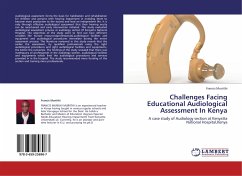The purpose of the study was to investigate the development of moral reasoning in school children. The major objective was to find out whether moral reasoning of children follows the same sequential order as found in other countries. It also investigated whether there were any significant gender and rural - urban differences in moral reasoning. The major findings of the study were that most of the subjects used the immature levels (stages 1 and 2) of moral reasoning. Reasons frequently used in moral justifications were advantages, labels, exchanges, unilateral authority and other external and self - focused considerations. There were significant age differences in subjects' moral reasoning. Younger subjects had lower SRMS scores than older subjects. There was a significant relationship between age and moral reasoning but no significant gender differences in moral reasoning were found. Subjects from urban areas had significantly higher SRMS scores than those in rural areas.In relation to these findings, it was recommended that parents need to model more mature levels of moral reasoning especially when disciplining their children.
Bitte wählen Sie Ihr Anliegen aus.
Rechnungen
Retourenschein anfordern
Bestellstatus
Storno








